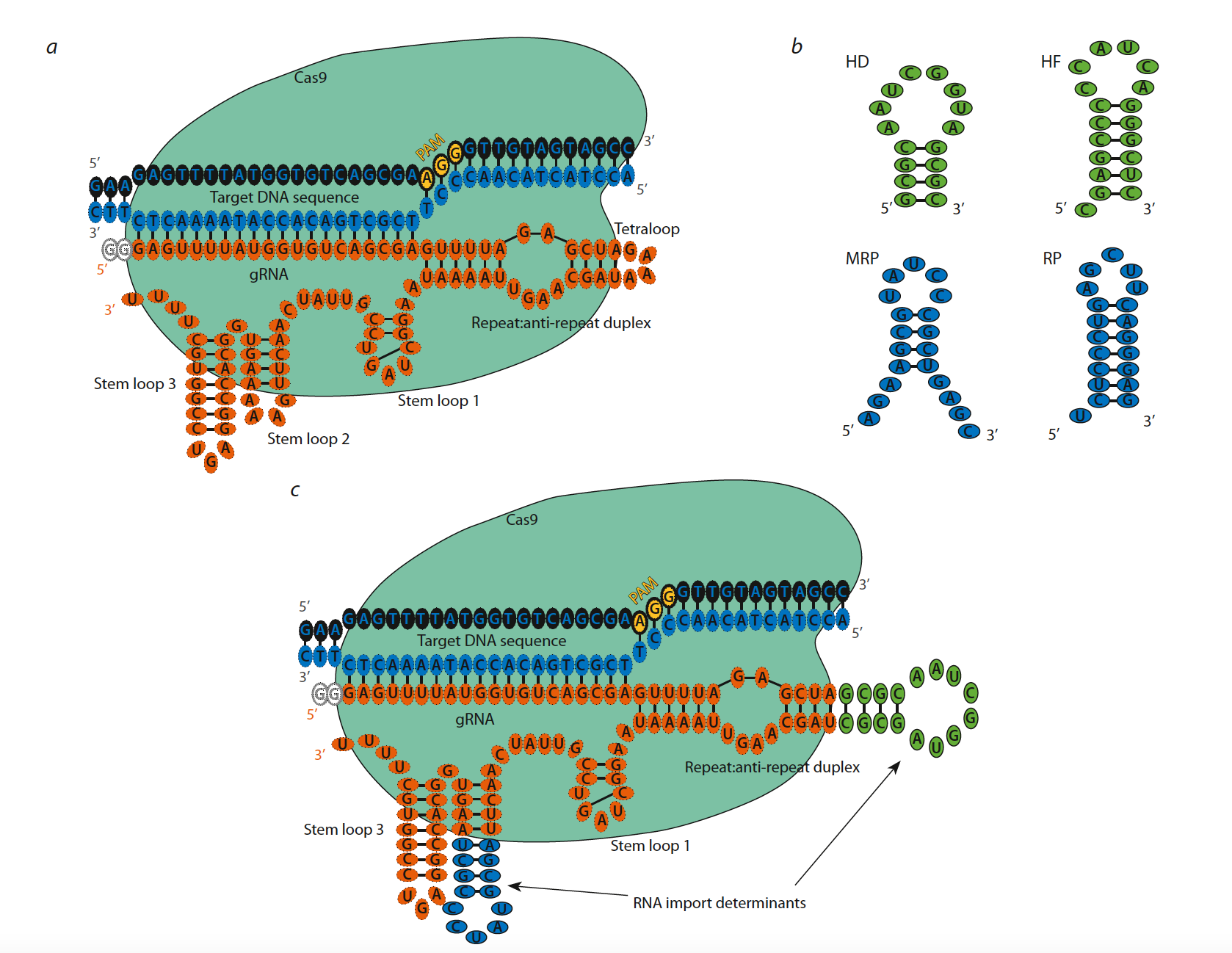the degree of their manifestation directly depend on the number of mutant mtDNA molecules in the cell. The possible way to reduce adverse effects of the mutation is by shifting the level of heteroplasmy towards the wild-type mtDNA molecules. Using this idea, several gene therapeutic approaches based on TALE and ZF nucleases have been developed for this purpose. However, the construction of protein domains of such systems is rather long and laborious process. Meanwhile, the CRISPR/Cas9 system is fundamentally different from protein systems in that it is easy to use, highly efficiency and has a different mechanism of action. All the characteristics and capabilities of the CRISPR/Cas9 system make it a promising tool in mitochondrial genetic engineering. In this article, we demonstrate for the first time that the modification of gRNA by integration of specific mitochondrial import determinants in the gRNA scaffold does
not affect the activity of the gRNA/Cas9 complex in vitro.
Key words: mitochondrial DNA; CRISPR/Cas9; the mitochondrial import determinants; heteroplasmy.
For citation: Zakirova E.G., Vyatkin Y.V., Verechshagina N.A., Muzyka V.V., Mazunin I.O., Orishchenko K.E. Study of the effect of the introduction of mitochondrial import determinants into the gRNA structure on the activity of the gRNA/SpCas9 complex in vitro. Vavilovskii Zhurnal Genetiki i Selektsii = Vavilov Journal of Genetics and Breeding. 2020;
24(5):512-518. DOI 10.18699/VJ20.643
ПОДРОБНЕЕ
